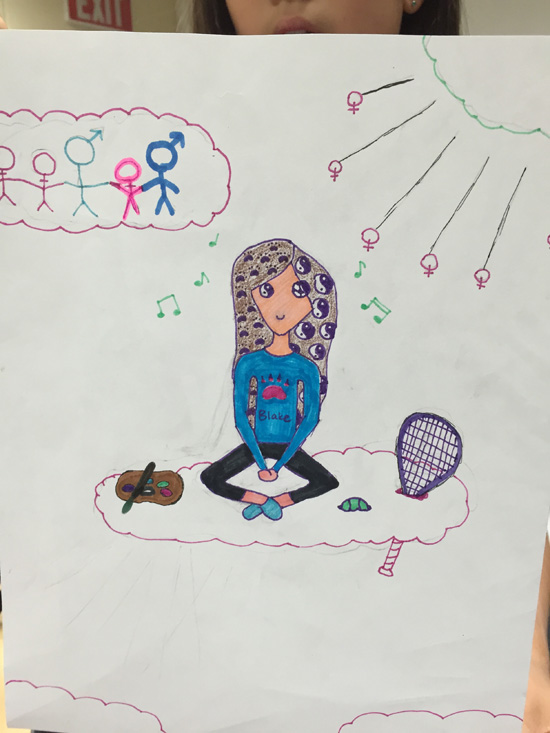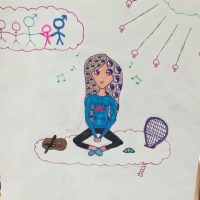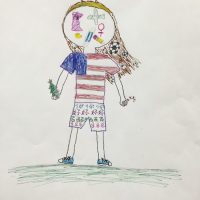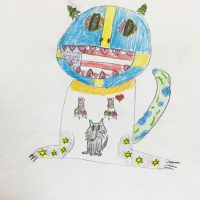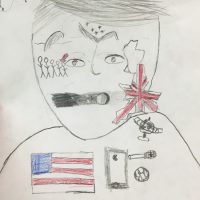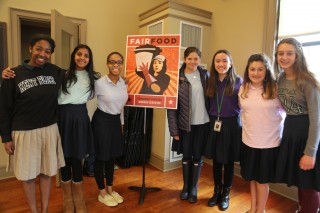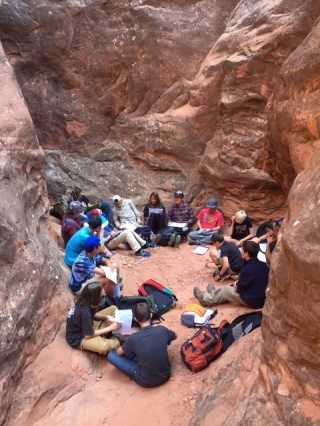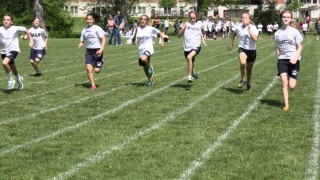Sixth graders in Blake’s Humanities classes examine global issues, first by studying themselves, then by delving into others’ perspectives. In their first unit, “The Groups to Which We Belong,” they learn not just how, but why, they see things as they do.
Discussions include topics ranging from race, ethnicity, and religion to socio-economics and gender. Students begin by drawing seven “circles” around their names that list the identities important to them. Descriptions range from the expected—“I’m a hockey player” or “I’m a dog lover”—to “I’m African American,” or “I’m a Muslim.” As students think about their identities, they refute stereotypes by writing statements such as, “I’m a hockey player, but I’m not a dumb jock, or “I’m a Muslim, but I’m not a terrorist.” Through this exercise, they realize how easy it is to fall into the trap of a single story about a group of people.
“It’s important for students to understand their own identities, backgrounds, and experiences in order to recognize the lenses through which they see the world,” says faculty member KK Neimann. “They start to understand how race is different than gender; how privilege, and lack of it, can affect people; and how easy it is to stereotype.”
Student Mackenzie H. says the class gives her an understanding of what it feels like to belong to a different group. Imaan A. agrees: “It’s easier than you think to have things in common with someone with different ‘circles’ than you.”
Later in the year, students explore global issues, human rights, sustainable development, and “Us vs. Them” thinking. Their efforts culminate in “Project Cirklo,” when they present their findings, including possible long-term solutions, to the school community.
